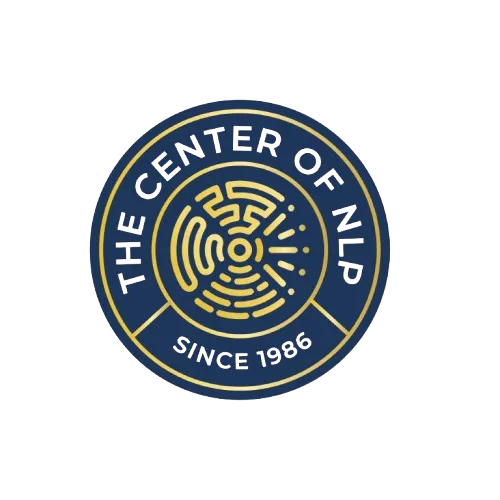
Using NLP to Enhance Leadership Skills and Influence Others
Introduction
Effective leadership requires a diverse skill set encompassing communication, influence, emotional intelligence, and the ability to inspire others. Neuro-Linguistic Programming (NLP) offers powerful techniques and can improve communication, build rapport, and achieve tremendous success in their personal and professional lives.
Understanding Neuro-Linguistic Programming (NLP)
Neuro-Linguistic Programming is a psychological approach focusing on the connection between neurological processes, language, and behavioral patterns learned through experience. It explores how individuals perceive the world, communicate, and interpret information. NLP techniques aim to reprogram the mind to adopt new behaviors and patterns that lead to personal and professional growth.
The Role of NLP in Leadership Development
Neuro-Linguistic Programming (NLP) offers valuable tools and techniques to enhance leadership development in various ways. Firstly, it helps leaders develop practical communication skills to convey their ideas and vision. NLP techniques such as mirroring, pacing, and matching enable leaders to establish rapport with team members and stakeholders, fostering trust and collaboration.
Enhancing Communication Skills through NLP
Communication lies at the core of effective leadership. NLP provides leaders with a range of techniques to improve their communication skills. Leaders can ensure their message is accurately conveyed and received using sensory language, active listening, and understanding non-verbal cues. NLP also emphasizes the importance of clarity, brevity, and adaptability in communication, enabling leaders to connect with their audience more effectively.
Building Rapport and Influence
Building strong relationships and influencing others are crucial aspects of leadership. NLP equips leaders with techniques to establish rapport effortlessly. By matching and mirroring the body language, speech patterns, and preferred sensory modalities of others, leaders can create a sense of familiarity and trust. This enhanced rapport allows strategies to enhance leadership skills and empower individuals to influence others positively. In this article, we will explore the concept of NLP and how it can be applied to develop and enhance leadership abilities. By understanding the principles of NLP and utilizing its techniques, leaders can influence and inspire others toward shared goals.

Developing Self-Awareness and Emotional Intelligence
Self-awareness and emotional intelligence are essential qualities for effective leadership. NLP helps leaders deeply understand their thoughts, emotions, and behaviors. Through anchoring, reframing, and modeling successful individuals, leaders can gain control over their emotional states, make better decisions, and respond to challenges with resilience and empathy.
Setting Goals and Achieving Success
Neuro-Linguistic Programming (NLP) provides leaders with a structured approach to goal-setting and achievement. Using techniques such as chunking, visualization, and outcome framing, leaders can define clear goals, break them down into manageable steps, and maintain focus and motivation throughout the journey. NLP also helps leaders overcome limiting beliefs and fears that may hinder their progress, enabling them to achieve their full potential.
Overcoming Limiting Beliefs and Fears
Limiting beliefs and fears often hold leaders back from reaching their true potential. NLP offers powerful techniques like belief change patterns, timeline therapy, and submodalities to help leaders identify and overcome these limitations. By reframing negative beliefs and releasing emotional baggage, leaders can develop a mindset of abundance, resilience, and growth, allowing them to lead confidently.
Empowering Others through NLP Techniques
Leadership is not just about personal growth but also about empowering others to succeed. NLP techniques can motivate, inspire, and coach team members. By understanding and utilizing approaches such as embedded commands, the Milton model, and illustrative storytelling, leaders can create an environment that fosters creativity, innovation, and personal development among their teams.
Ignite Connection and Influence – Master NLP Techniques for Effective Communication!
Applying NLP in Conflict Resolution
Conflict is inevitable in any leadership role. Neuro-Linguistic Programming (NLP) equips leaders with effective conflict-resolution techniques. By employing strategies such as reframing perspectives, active listening, and building bridges of understanding, leaders can transform conflicts into opportunities for growth and collaboration. NLP also emphasizes the importance of win-win outcomes and maintaining positive relationships during conflict resolution.
Harnessing NLP for Effective Decision Making
Leaders are often faced with complex decisions that impact their organizations and teams. NLP provides tools for effective decision-making. Leaders can gather information, analyze options, and make decisions aligned with their values and objectives using perceptual positions, logical levels, and decision strategies. Neuro-Linguistic Programming (NLP) also encourages leaders to trust their intuition and leverage their unconscious minds in decision-making.
NLP Techniques for Motivation and Inspiration
Motivating and inspiring others is a crucial responsibility of leaders. NLP offers techniques that leaders can use to encourage individuals and teams. Techniques such as positive anchoring states, utilizing language patterns, and creating compelling visions enable leaders to inspire others toward peak performance and goal achievement. By mastering these techniques, leaders can create an environment that encourages personal growth and high motivation.
Leadership Case Studies: Real-Life Applications of NLP
To illustrate the practical application of NLP in leadership, let's examine some real-life case studies. We will explore how leaders have utilized NLP techniques to overcome challenges, inspire their teams, and achieve remarkable results. These case studies serve as practical examples of the power of NLP in leadership and offer insights into how it can be implemented in various contexts.
Ethical Considerations in NLP and Leadership
While NLP offers powerful tools for leadership development, it is important to consider ethical considerations. Leaders must ensure they use NLP techniques responsibly and ethically, respecting the autonomy and well-being of others. It is crucial to obtain proper consent, maintain confidentiality, and align NLP practices with ethical guidelines and standards.
Basic Points to Consider

Neuro-Linguistic Programming (NLP) provides leaders with comprehensive tools and techniques to enhance their leadership skills and influence others positively. By incorporating NLP principles into their practice, leaders can improve communication, build rapport, develop self-awareness, set and achieve goals, overcome limitations, empower others, resolve conflicts, make effective decisions, and inspire their teams. With its practical applications and real-life case studies, NLP is a valuable resource for leaders seeking personal and professional growth.
Check Out For more:

